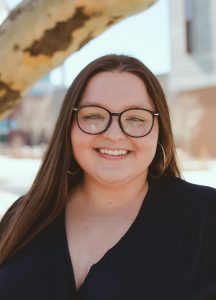Late next January, the Utah State Legislature will convene to begin the 2020 General Session. Seventy-five state representatives and 29 state senators will meet together to propose, debate and pass hundreds of laws during the 45-day session. Throughout the session, the Capitol building will be visited by hundreds of students and families for tours, swarms of lobbyists seeking to influence legislation and approximately 90 of Utah’s college students working as full-time paid interns for a state legislator.
Unlike some other state legislatures, the Utah State Legislature does not employ individual staff for each legislator. Instead, the Office of Legislative Research and General Counsel employs dozens of college students as legislative interns and pairs each student with one (or occasionally two) state legislator. Legislators and their interns work together for the entire session.
The University of Utah’s Hinckley Institute of Politics collects applications from students during the fall semester before the session and sponsors student interns in the spring. In addition to working individually with a state legislator, legislative internships with advocacy groups or various offices within the executive branch are also available to students.
While many legislative interns major in political science, students of all majors stand to benefit from the Hinckley Institute’s legislative internship. Every sector of professional work interacts with government in one way or another. Gaining an in-depth understanding of the inner workings of state government will provide students, particularly STEM majors, with expertise that few people possess. During the 2019 General Session, there were hundreds of bills addressing health, education, natural resources and technology. Students who are not majoring in social sciences or the humanities have just as much to gain from a legislative internship and have the potential to offer a unique perspective or skill set to their legislators.
Legislative interns will not only bolster their understanding of the textbook description of how a bill becomes law, but they will also assist throughout the legislative process themselves. In a broader sense, interns learn about the ways in which the media, public opinion and special interests influence the policymaking process in Utah.
Many legislators, especially those who have been in office for multiple terms, work with a large variety of stakeholders and experts on the various bills they bring forward each year. Each bill gives a legislative intern the opportunity to learn about a specific field of work, research or law, and to meet influential leaders in that field.
The Hinckley Institute’s legislative internship can provide the network necessary to find a graduate’s first post-college job or a student’s next internship. Interns will create life-long friendships with students from other universities and will meet countless government officials, lobbyists and activists, civic leaders and business executives from all around the state.
I had the chance to intern with a state representative during the 2019 spring semester, and it was one of the most rewarding internships I’ve had. Since the end of my legislative internship, all of the jobs I have been offered were directly or indirectly made possible by my legislative internship. Some opportunities arose because of lobbyists I interacted with, some because of students I worked with and others because I had gained proficiency in a certain area of policy.
During the course of a single session, my legislator sponsored legislation addressing cloud computing, guns, lead testing in school water, switcher locomotives and the state flag, just to name a few. The number of bills a legislator sponsors, and their involvement in leadership or separate caucus will affect an intern’s day-to-day responsibilities. Mine varied daily, but I consistently managed my legislator’s calendar, email and social media accounts. Some interns will be primarily responsible for drafting talking points, memorandum and floor handouts.
Before being paired with an intern, each state legislator fills out a survey explaining their intern’s main responsibilities, and what skills they would prefer that their interns possess. Interns also fill out a survey describing their policy interests and the specific skills and experience they already have. So while legislative interns develop a variety of skills, they often vary depending on their legislator’s policy and communications priorities. Some skills, like legislative research, time management and professionalism, are learned by all interns.
Hinckley’s legislative internship is often described as one of the most intense internships offered. They make sure to prepare students for what they are about to experience. Before the beginning of the session, interns are taught everything they will need to know about the upcoming session by Utah professors, politicians, reporters and lobbyists.
After the session has adjourned sine die, the U’s legislative interns complete a seminar course tailored to their experiences during the session. Students read political science research that, when coupled with the phenomena they witnessed during the session, teaches larger lessons about the political institutions that govern Utah.
There are very few opportunities for politically minded college students to be as involved in the legislative process as the legislative internship. U students have the unique opportunity to gain firsthand experience and expertise in state government while expanding their professional network and improving their resume. Students interested in government and politics should become informed about the Hinckley Institute’s legislative internship program and should apply before the fall deadline.
Legislative internship applications consist of a current resume, a cover letter, writing sample, letters of recommendation and an official U transcript. Applications are due by Oct. 1, and additional information about the application process and requirements can be found online on the Hinckley Institute’s website.
Not every student who does a legislative internship will choose politics for their career — in fact, the internship may help students realize that they don’t want to work in politics. But the knowledge, network and skills gained during a legislative internship will benefit students for the rest of their college education and into their professional lives.
[email protected]
@sheelyedwards


